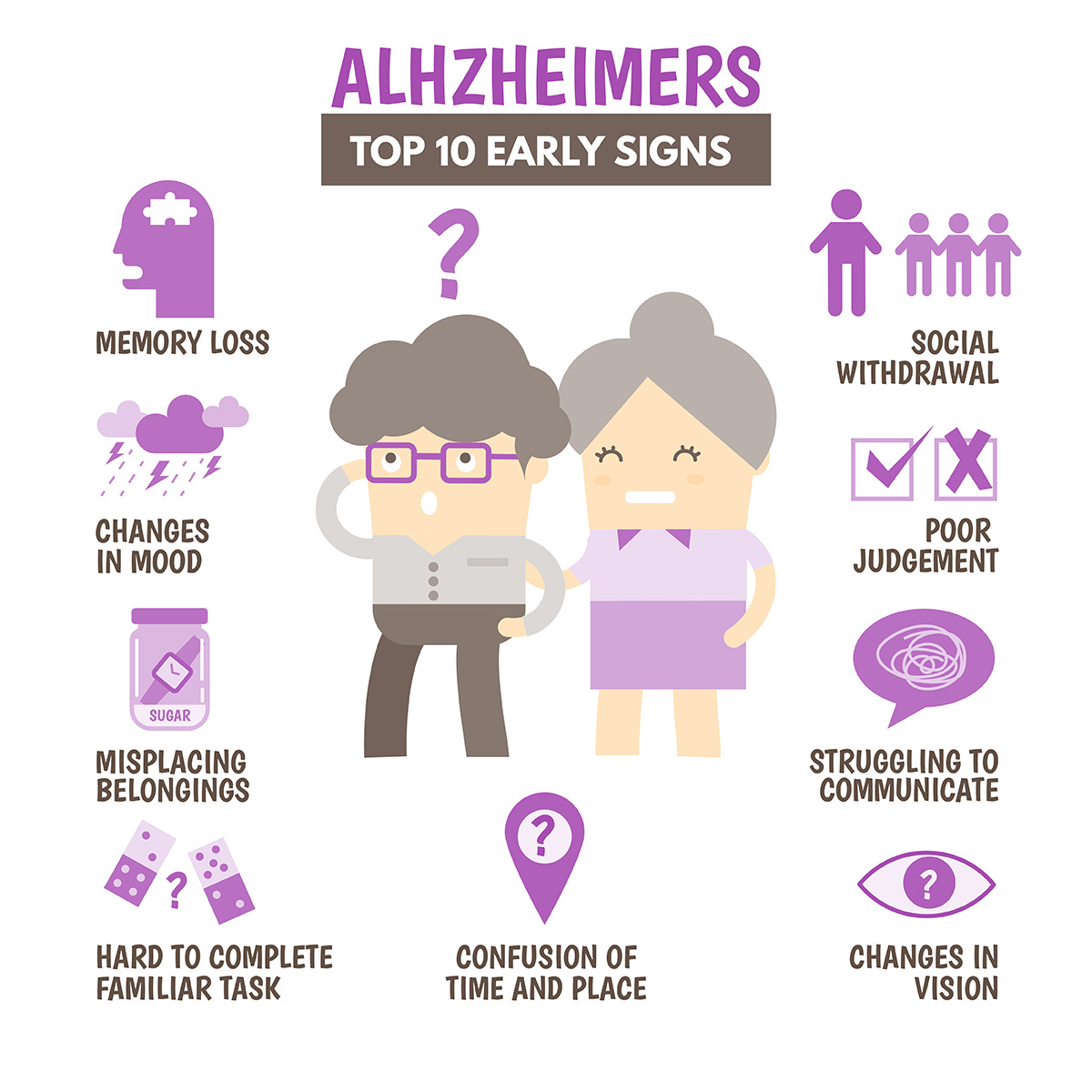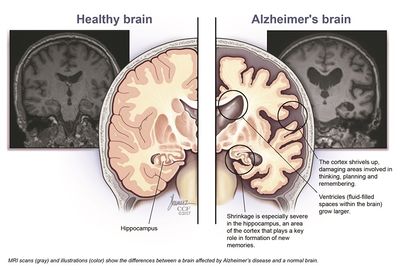Recognizing the Influence of Dementia on Every Day Life and Caregiving
Dementia impacts day-to-day live in extensive ways, influencing not simply those detected yet also their caregivers. As cognitive decline advances, you might discover modifications in communication and routine that challenge both events. Understanding these changes is vital for keeping self-respect and engagement. Just how do you adapt your caregiving strategies to support a person traversing this facility journey? The responses may amaze you as we explore the subtleties of this experience.
The Stages of Dementia and Their Impacts on Life
As you navigate the journey of dementia, understanding its stages can considerably affect how you manage daily life. Mental deterioration normally proceeds with 3 primary phases: early, middle, and late. In the onset, you may discover periodic memory lapses or problem finding the right words. This can cause frustration, yet identifying these indications early assists you adapt your regular and look for assistance.
During the center stage, you'll experience much more visible cognitive decline. Daily jobs might become difficult, and preserving your self-reliance might need modifications. Using tips and streamlining your atmosphere can assist.
In the late stage, individuals typically need significant assistance with daily tasks. Preparation for treatment ends up being necessary, concentrating on convenience and high quality of life. By understanding these phases, you're much better geared up to respond proactively, guaranteeing you or your liked one can navigate the obstacles with self-respect and grace.

Adjustments in Communication and Social Interaction
How do modifications in interaction impact your everyday communications as mental deterioration progresses? As dementia advancements, you may see that straightforward discussions come to be challenging. Words may leave you, or you might battle to find the ideal phrases. This can cause frustration for both you and your liked ones. Nonverbal hints, like gestures or face expressions, become progressively essential.
You might find it simpler to connect through these means rather than counting only on talked language. Listening skills can likewise change; you might find it more difficult to comply with discussions or bear in mind what was simply claimed (Early Onset Dementia). This can bring about misconceptions or feelings of seclusion
Urging patience and producing a helpful atmosphere can assist. Engaging in tasks that cultivate link, like music or art, can improve social interactions. Keep in mind, keeping connections is still possible; it's practically adjusting to new means of interacting.
Impact on Daily Routines and Activities
While maneuvering daily routines, you'll likely discover that jobs you as soon as finished easily become extra tough as mental deterioration proceeds. You could locate on your own forgetting steps in familiar regimens or struggling to remember where you put items.
Adjusting your atmosphere can assist; for instance, classifying products or using lists can streamline tasks. Engaging in repetitive, organized activities can also provide convenience and a feeling of achievement. Bear in mind, it's fine to ask for aid.
Behavior and emotional Obstacles
Steering through everyday routines can cause not simply functional challenges, however additionally emotional and behavior ones. You might see adjustments in mood, such as increased stress and anxiety or frustration, which can come from confusion or trouble in finishing jobs. As you browse these moments, it is important to acknowledge that your liked one may reveal their feelings through behaviors like anxiety or withdrawal.
These psychological responses can be uncertain and might develop without warning, leaving you both feeling bewildered. You might discover that acquainted settings or routines can help in reducing anxiousness, but keeping perseverance ends up being significant. It is important to verify their sensations, also if you don't completely recognize them.
The Function of Caregivers in Supporting Individuals With Dementia
As a caregiver, you play a necessary duty in giving psychological assistance for people with mental deterioration. Establishing day-to-day care routines can develop a feeling of stability and convenience, assisting to alleviate their stress and anxiety. By comprehending their needs and making use of effective techniques, you can greatly enhance their high quality of life.
Psychological Support Approaches
When taking care of a person with mental deterioration, comprehending the emotional landscape is necessary for supplying efficient assistance. You'll commonly find that persistence and empathy go a long method. Validate their feelings; if they share complication or frustration, recognize it without dismissing their emotions. Easy motions, like holding their hand or preserving eye get in touch with, can create a feeling of security. Try to take part in tasks that they appreciate, as this can stimulate delight and connection. Keep in mind to connect clearly and slowly, making use of a tranquil tone. Motivate expression through music or art, which can function as a powerful electrical outlet. Eventually, don't forget to look after your own psychological requirements; seeking assistance for yourself can improve your capability to take care of them.
Daily Treatment Routines
Developing everyday care regimens is vital for supplying security and comfort to people with mental deterioration, as these regimens can aid decrease complication and anxiety. You can begin by describing a regular schedule for meals, tasks, and remainder. This predictability helps your liked one really feel a lot more protected and involved.
Include acquainted jobs, like folding washing or watering plants, which can stimulate positive memories and promote a sense of accomplishment. Usage visual signs, such as lists or calendars, to assist them with the day.
Be flexible, though; adjust regimens as needed based upon their state of mind or energy levels. Frontotemporal Dementia. Remember, your persistence and understanding More Bonuses are important in maneuvering their transforming requirements, ensuring they feel sustained and valued throughout their everyday life
Developing a Safe and Comfortable Living Environment
Producing a risk-free and comfy living setting is important for people with mental deterioration. You'll wish to make home safety alterations that lower risks and assure knowledge to supply a sense of convenience. By concentrating on these elements, you can aid create an area that sustains both security and health.
Home Safety Alterations
As you browse the obstacles of dementia, making home security modifications can considerably boost convenience and safety. Beginning by removing tripping risks like carpets and clutter, assuring walkways are clear. Set up grab bars in shower rooms and non-slip floor coverings in the shower to stop falls. Consider using brighter lighting and evening lights to boost visibility, especially throughout nighttime. Label vital locations, such as the shower room and kitchen area, with clear indications to help with positioning. Protect any kind of sharp things or hazardous compounds unreachable. Furthermore, analyze your home's locks and alarms to confirm they're easy to use and give comfort. These adjustments not only promote security yet likewise urge independence, enabling your enjoyed one to feel even more secure in their environment.
Convenience and Familiarity
After guaranteeing a safe setting with necessary adjustments, fostering convenience and experience is essential for people with dementia. Begin by customizing their area. Usage acquainted shades, decorations, and pictures that evoke happy memories. A preferred covering or chair can provide a sense of protection. Maintain a consistent routine to assist them really feel based and lower anxiety. Easy, acquainted dishes can additionally develop a comforting atmosphere. Keep paths clear and clutter-free to avoid confusion. Integrate soft lights, as intense lights can be disorienting. Take into consideration adding calming fragrances, like lavender, to promote relaxation. Involving in familiar activities, such as paying attention to songs or gardening, can enhance their sense of belonging, making their living environment a real refuge.
Approaches for Reliable Caregiving and Assistance
While steering the obstacles of mental deterioration treatment can really feel overwhelming, executing effective strategies can significantly improve both the caregiver's and the client's everyday experience. Beginning by developing a routine; predictability helps reduce anxiety for both you and your liked one. Usage clear, straightforward interaction-- brief sentences and direct concerns can stop confusion.

Don't neglect to look after yourself; timetable breaks and connect with support system. Sharing experiences with others in look here similar circumstances can give beneficial insights and psychological alleviation.
Last but not least, remain patient and versatile. Dementia can bring uncertain adjustments, so adjusting your strategy is essential. By employing these techniques, you can foster a more positive setting that profits both you and your enjoyed one.
Frequently Asked Concerns

What Are the Different Sorts Of Mental Deterioration?
You'll find a number of kinds of mental deterioration, including Alzheimer's, vascular mental deterioration, Lewy body dementia, and frontotemporal dementia. Each kind affects memory and cognitive function in different ways, so comprehending the differences is important for appropriate medical diagnosis and treatment.
Exactly How Can I Aid Somebody With Early-Stage Mental Deterioration?
You can assist somebody with early-stage mental deterioration by being person, providing assistance, and motivating them to engage in activities they take pleasure in. Keeping routines consistent and keeping open interaction can likewise make a considerable difference in see it here their day-to-day live.
Exist Financial Resources Available for Mental Deterioration Treatment?
Yes, there are monetary resources offered for dementia care. You can discover federal government help programs, not-for-profit companies, and insurance policy alternatives. It's additionally important to seek advice from neighborhood firms for specific resources customized to your scenario.
What Lawful Considerations Should Caregivers Be Aware Of?
As a caregiver, you must take into consideration power of attorney, health care proxies, and guardianship laws. It's important to recognize the lawful civil liberties and duties you hold, ensuring your loved one gets ideal care and protection.
How Can I Handle Caretaker Tension?
You can manage caregiver anxiety by focusing on self-care, looking for support from groups or buddies, setting reasonable expectations, taking breaks, and practicing leisure strategies. Bear in mind, your wellness matters just as long as the person you're looking after.
Understanding the Impact of Dementia on Daily Life and Caregiving.
As you browse the trip of mental deterioration, recognizing its stages can markedly affect just how you take care of day-to-day life.While navigating daily regimens, you'll likely see that jobs you once completed effortlessly become much more tough as mental deterioration proceeds.Developing daily care routines is important for supplying security and comfort to individuals with mental deterioration, as these routines can assist reduce confusion and anxiousness.While navigating the obstacles of dementia care can feel frustrating, carrying out effective methods can greatly enhance both the caretaker's and the client's day-to-day experience.